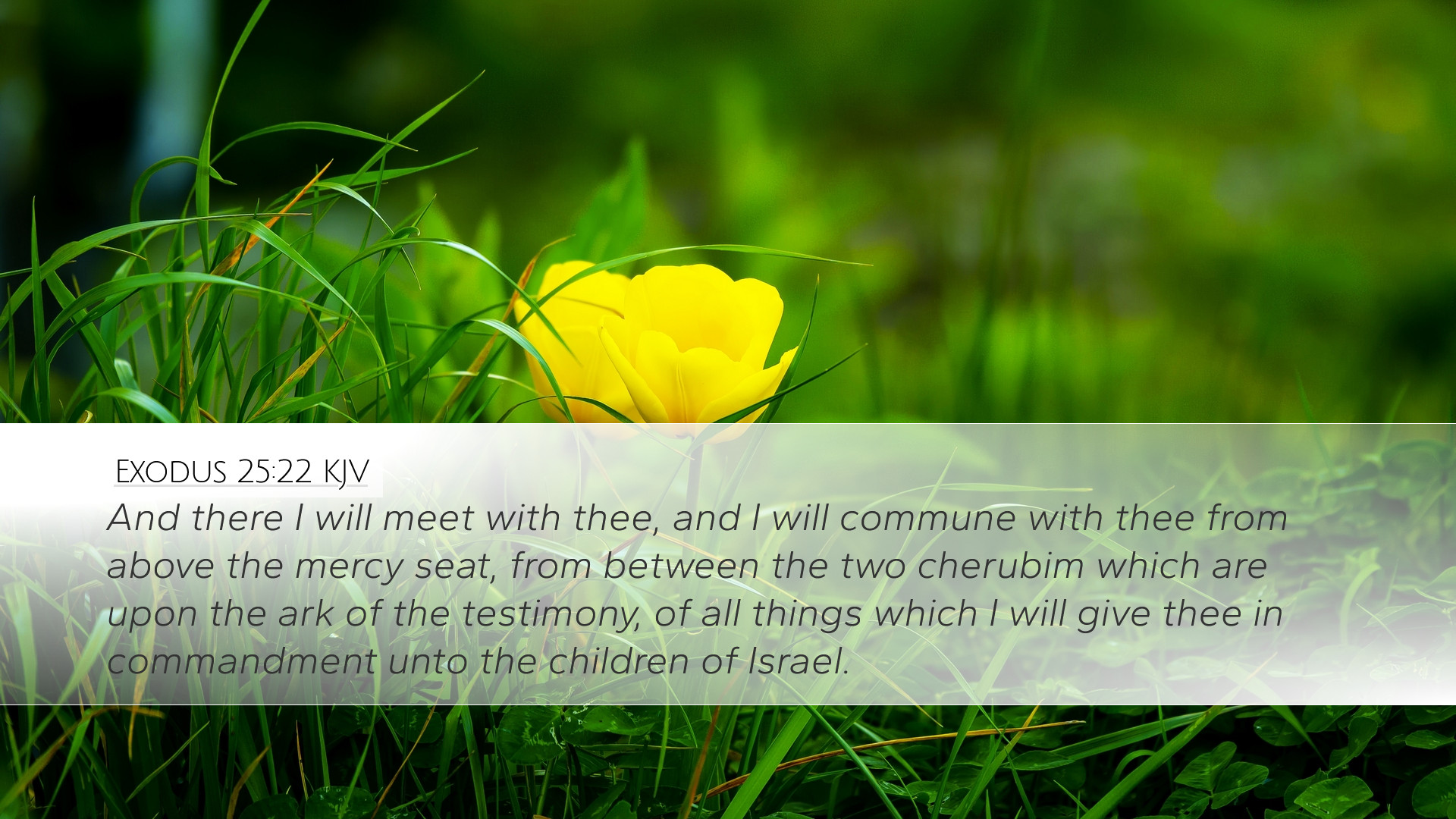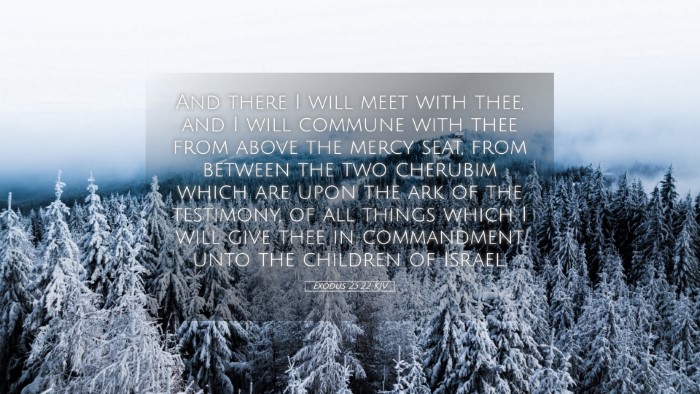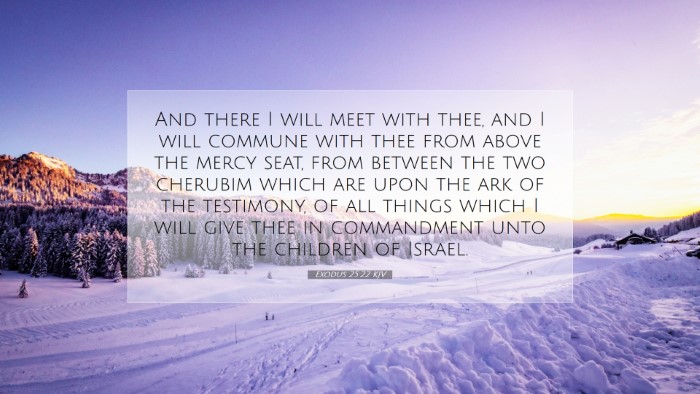Exodus 25:22 Commentary
Bible Verse: Exodus 25:22 states, "And there I will meet with you, and I will speak with you from above the mercy seat, from between the two cherubim which are upon the ark of the testimony, of all things which I will give you in commandment unto the children of Israel."
Introduction
This verse encapsulates a significant moment in the covenant relationship between God and His people. The instructions regarding the sanctuary and the mercy seat reveal profound theological truths about God's desire to dwell among His people, emphasizing His intimate communication with Israel. This commentary synthesizes insights from public domain sources to explore the depth of this scripture.
Theological Significance
Matthew Henry emphasizes that this verse shows God's intent to establish a particular place where He would meet His people. The mercy seat represents the divine presence, a place of reconciliation and atonement. It reflects the heart of God striving for communion with humanity, illustrating that worship and obedience are crucial aspects of this relationship.
Albert Barnes outlines how the mercy seat symbolizes God's grace. The mercy seat was not simply a piece of furniture; it was a monumental expression of God's character—righteous, yet merciful. When God declares that He will communicate from the mercy seat, it underlines that His instructions will always be framed within the context of His mercy, emphasizing His willingness to forgive and guide His people towards holiness.
Historical Context
Adam Clarke provides a detailed understanding of the historical setting of this verse. The Israelites had recently escaped slavery in Egypt, and they were on their way to the Promised Land. In establishing this communication channel, God reinforces His authority and guidance over them as they prepare for nationhood. The mercy seat thus serves as the pivot around which their identity and worship revolve, as it holds both the law (the tablets of the covenant) and the promise of God's presence.
Structural Analysis
The verse can be broken down into key components for a better understanding of its implications:
- Divine Encounter: "There I will meet with you." This phrase signifies God's initiative in seeking a relationship with His people.
- Communication: "I will speak with you." God does not remain distant; instead, He desires to communicate His will directly.
- The Condition of the Meeting: “from above the mercy seat.” This indicates that any approach to God must recognize His holiness and the provision for atonement.
- Purpose: "of all things which I will give you in commandment." God declares that the communication will be instructive, underlining obedience as a response to His revelation.
Symbolism of the Mercy Seat
Both Matthew Henry and Albert Barnes point out that the mercy seat, with the cherubim positioned over it, serves as a symbol of God's sovereign rule and the protection He offers. The two cherubim represent divine guardianship and the holiness of God. This imagery is profound; it illustrates that God's presence is approachable only through the means He has instituted—sacrifice and atonement.
Application for Today
This verse has implications for contemporary faith communities. It reminds believers that God still seeks communion with humanity. Churches can view the mercy seat as a metaphor for their worship spaces, where the community gathers not just to remember historical events but to encounter the living God.
Furthermore, the call to obedience found in this passage resonates with the New Testament, where believers are encouraged to listen to the voice of God. The importance of being directive in our relationship with God is highlighted here, calling upon leaders, teachers, and congregations to walk in accordance with His commandments.
Conclusion
Exodus 25:22 is a profound declaration of God's desire for relationship and guidance. Through the mercy seat, God reveals His heart for reconciliation, emphasizing His desire to communicate with His people. By understanding the historical, theological, and applicative aspects of this verse, pastors, students, theologians, and scholars can appreciate the depth of God's interactions with humanity and how those principles apply to the modern believer's life.


